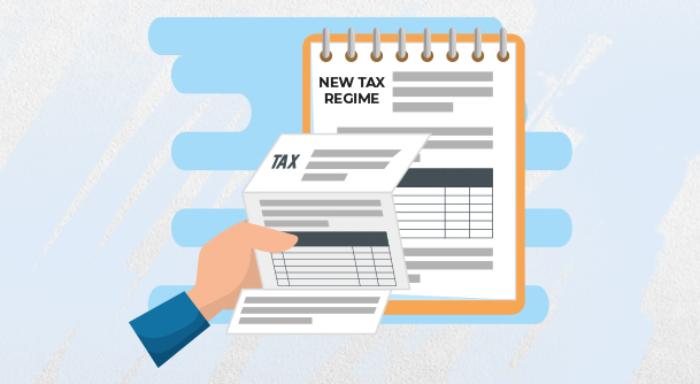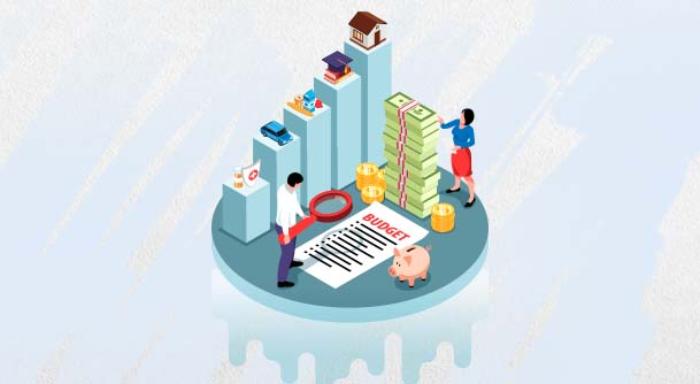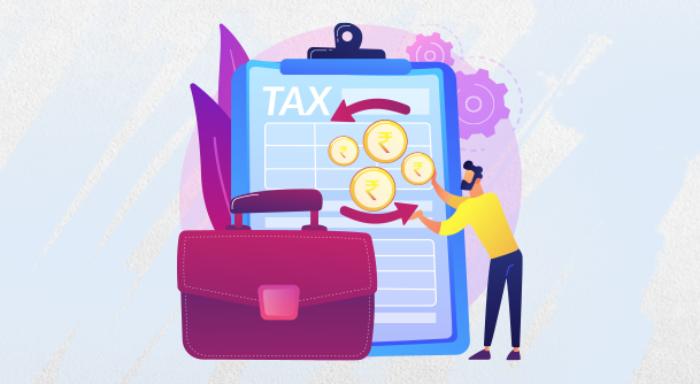Tax Collected at Source (TCS)
Blog Title
1492 |
11/4/25 10:05 AM |
Have you ever wondered why some purchases cost a bit more than expected? That extra amount could be Tax Collected at Source (TCS). A tax that the government collects when you buy certain goods or services. It’s like an advance payment you can claim back later during your tax return.
Whether you're exploring tax saving investments, understanding TCS can help you manage your finances better. Here, we will get an idea about TCS in simple terms and clarify how it differs from TDS. Also, you will explore who collects it, what transactions it covers, and how it affects you.
Understanding TCS
Tax Collected at Source, or TCS, is a tax that sellers charge you when you purchase certain goods or services. It acts like an advance payment towards your taxes. When you file your income tax return, you can claim this amount as a credit, reducing what you owe or getting a refund.
Unlike TDS, or Tax Deducted at Source, which is subtracted from your income, like your salary, by the payer, TCS is collected by the seller at the time of sale. For example, buying a car worth over ₹60 lakhs may include TCS, while your employer deducts TDS from your paycheck.
This distinction matters because TCS applies to specific transactions, ensuring the government collects tax upfront. Understanding TCS helps you manage your tax saving efforts, similar to choosing a life insurance policy for financial planning. Always keep the TCS certificate to claim your credit smoothly.
Who is Responsible for Collecting TCS?
Sellers or businesses collect TCS from you when you buy specific goods or services. These sellers must be registered under the Income Tax Act and follow strict government guidelines.
Sellers with a turnover above ₹10 crore in the previous financial year must collect TCS on goods sales exceeding ₹50 lakh to a single buyer in the current financial year. The TCS rate is typically 0.1% on the excess amount.
Sellers must meet some requirements:
1) Collect TCS from you at the time of sale.
2) Pay the collected tax to the government on time.
3) Provide you with a TCS certificate for filing your income tax return.
4) Maintain accurate records of all TCS-related transactions.
Failure to comply with these rules can lead to penalties for the seller.
Transactions Covered by TCS
TCS applies to several types of purchases. Here are some common ones:
- Timber and scrap.
- Alcoholic liquor for human consumption.
- Minerals like coal, lignite and iron ore.
- Bullion (gold, silver) exceeding ₹2 lakh.
- Jewellery exceeding ₹5 lakh.
- Motor vehicles exceeding ₹10 lakh.
- Parking lot, toll plaza and mining services.
Current TCS Rates
TCS rates depend on what you’re buying. Here’s a simple table with some examples:
Transaction Type |
TCS Rate |
Alcoholic liquor for human consumption |
1% |
Scrap |
1% |
Minerals (coal, lignite, iron ore) |
1% |
Bullion (gold, silver) > ₹2 lakh |
1% |
Jewellery > ₹5 lakh |
1% |
Motor vehicles > ₹10 lakh |
1% |
Parking lot, toll plaza, mining services |
2% |
Sale of goods (if seller's turnover > ₹10 crore) |
0.1% |
Foreign remittance under the Liberalised Remittance Scheme (LRS) |
5% for education and medical purposes above ₹10 lakh; 20% for other purposes above ₹10 lakh |
How Does TCS Impact You?
Now that you know who collects TCS, let’s explore how it affects your wallet and how you can benefit from it during tax season.
- Paying TCS at Purchase: When you buy items like a car worth ₹12 lakhs, you pay TCS on top of the price. For a 1% TCS rate, this adds ₹ 12,000 to your cost, collected by the seller during the transaction.
- Claiming TCS as Credit: When filing your income tax return, use the TCS certificate to claim the tax as a credit. This reduces your tax liability, similar to how a term insurance plan offers tax benefits under Section 80C.
- Keeping the TCS Certificate: Always keep the TCS certificate provided by the seller. It’s essential for claiming your credit during tax filing, much like retaining documents for a life insurance policy to avail tax saving benefits.
- Possibility of Refunds: If your TCS payments exceed your tax liability, you may get a refund from the government. This ensures you don’t lose money, making TCS a temporary payment rather than an extra cost.
- Planning Your Finances: Understanding TCS helps you manage your money better. By tracking TCS payments, you can align them with other tax saving investments like ULIP to optimise your tax planning and financial goals.
TCS on Foreign Remittance and Tour Packages – Recent Updates
Recent TCS rules cover foreign remittances under LRS and overseas tour packages. Remittances above ₹10 lakh incur 5% TCS for education/medical purposes and 20% for others, like travel. Overseas tour packages above ₹10 lakh also attract 20% TCS. Banks or tour operators collect these, issuable as credits during tax filing.
Conclusion
TCS ensures the government collects taxes early during purchases. By understanding its rules, you can plan your finances wisely. Claiming TCS credits reduces your tax burden, much like a savings plan offering security.
Recent changes to foreign remittances highlight the need to stay updated. Keep your TCS certificates handy to maximise benefits when filing returns. This approach, paired with smart choices like a term policy, helps you manage taxes effectively and achieve financial peace.






